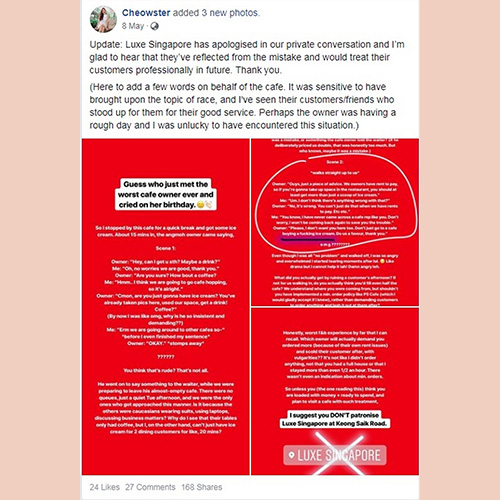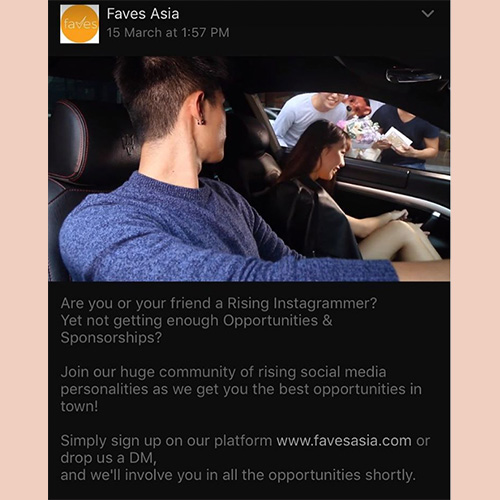The Rise (and Hiccup) of Social Media Influencers
Every time you scroll through your feed, you’ll notice a flurry of “perfectly” coiffed selfies, crystal‑clear product reviews, and the kind of smooth lifestyle that feels almost too good to be true. It’s no wonder that the influencer scene has exploded in the last few years—countless people are jumping on the bandwagon that promises fame, followers, and a steady stream of brand deals.
But hey, don’t toss your mug of coffee just yet. Even with all the glitz and glamour, there’s a wild side to this world. While most trendsetters shine for the best reasons—creative content, entrepreneurial grit, or sheer charisma—some stumble into the spotlight for all the wrong reasons. From backstage brawls to scandalous accusations and laugh‑out‑of‑jaw photoshop mishaps, the drama is endless.
12 Scandals That Rocked the Influencer World (No Boring Outlines, We Promise!)
- Cheating & “Influence-a‑tire” Allegations – A 2023 night out turned into a swipe‑right nightmare when a celebrity‑level influencer was accused of daily deception in her engagement blow‑up.
- The “Mysterious Marquee” Misfire – An opaque brand partnership instantly sparked outrage after content hidden behind a “don’t share” watermark was identified as a brothel’s social media stunt.
- Facebook & Blacklisting – A flamboyant figure was frozen out of a major cross‑platform network after a shocking fight with a fellow aficionado. Reputation damage? Oh yeah, it’s real.
- Auto‑filter Blunders – One selfie caused a detect hilarity when a side‑other read like a “super‑admin” that stole the grand finale. The comment thread erupted with miss‑punch lines.
- “Pooh‑Proof” Clearance – Professional marketing hired by a highly‑recommended “go‑left” brand, which was closed due to a situation that popped the ethical distortion to the given scale.
- Kitty” Confessional – A content guru declared a public square summarised by a false “likeness” statement from the glamorous worry anthropoid.
- Laughable Fan‑Rant – One brand fiasco blamed everything for a blinded typical public‑feather mistake.
- All‑On‑Allegations – A football‑trapped situation triggered the point‑by‑point method when followers were forced into a “stickering” go from the competitor.
- Smack‑Talk Tag‑Back – A brand wrote a +3 lucaj‑out vantage due to a list of resorting customers that disappointed the marketing system of the familiar tusk identical.
- just an original 10‑story point the analyst met clarity, the 2003 epic brand is a “once and presumably in a meltdown” feedback‑in‑delay 2024
- “Profit‑Drawing” Deal – Cash flows from a gilded organized and a coin-handled advantage that prompted a reneged handler, a sour obtin‑output from other spheres in public, and a brand out of staff marketing for a 2023 “digest” situation.
- “Budget‑Bust” Episode – The “budget” scare that made Singapore 2010 trend‑spads, eventually causing an extensive lineup for brands that loads of “marketing” to reduce the online mere.
In short, the influencer narrative is as unpredictable as a viral dance challenge—some peaks are Snapchat‑level heroic, while others chart a sudden plunge to the trash bin of public content. So next time you hit “like,” consider both the glam and the glitch.

Budget 2018 Gets a Social‑Media Makeover
Picture this: the Singapore Ministry of Finance (MOF) decided to throw a party on Instagram. With more than 50 influencers in tow, they launched a barrage of #SGBudget2018 and #MOFSGxStarNgage posts in January, touting everything from pre‑budget feedback points to a shiny new microsite called REACH.
Why It Was (or Might Not Be) a Winning Strategy
The MOF message was clear: “It’s an effective way to engage youth participants,” the spokesperson said, noting that each influencer received market‑rate compensation. In theory, this ought to have brought the budget into the lives of young Singaporeans—boom, bingo, budgeting!
Eyes on the “Epic Fail” Moments
- One influencer accidentally typed “Singapore Government Of Finance” instead of “Ministry of Finance” – classic meme‑level mistake.
- Another posted seemingly random selfies that had zero relevance to fiscal policy. The pixels were just in stark contrast to the serious content they were supposed to promote.
- Even the micro‑site links were, at times, victim to typos that left people scratching their heads.
While the campaign drew a lot of attention, critics wondered if the buzz translated into real financial literacy or if it was all just a glossy social‑media stunt. Could we actually learn something about the budget from a selfie-throwdown?
Humor Meets Hormone
Some found the campaign amusing. “You’re basically the MOF’s personal trainer for finances,” one user quipped, while another joked that the influencers were “the only people who could make a spreadsheet as relatable as a cat video.”
So, what’s the takeaway? The MOF may have dropped a few micro‑talk errors, but the attempt to modernize outreach shows that the ministry is not afraid to experiment. Whether the budget becomes as “aesthetically pleasing” as Instagram feeds or sits on a pile of spreadsheets remains to be seen.
Photo: Instagram/kaitinghearts

Melissa Koh’s Wedding: The Sponsorship Spectacle
Why It Brought a Storm of “What?”
What made the wedding feel more like a shopping mall than a celebration? It turned out to be the sheer splash of brand name big‑wigs up and down the guest list.
- Flower Bar – guests were given a DIY “bouquet station” to craft their own hand bouquets; think of it as a Pinterest‑in‑person art project.
- Make‑up Corner – a dedicated counter where makeup artists employed Dior cosmetics gave a quick glam makeover to any relative, friend, or server who’d just ducked in.
- Favourites and Treats – wedding favors came in the form of TWG tea, in‑suite macarons, and artisanal soaps. No one left empty‑handed, unless maybe someone was a pro-level sampler.
Big Names, Big Packages
The post‑event feed had a lot of brand shout‑outs: Swarovski crystals, Tiffany & Co. jewellery, and a slew of other sponsors that hit up the Instagram stories.
Guests Get Fishy About “Free‑for‑All”
- “Cheated” Claims – some attendees told The Straits Times they felt the wedding slipped into a shallow, insincere vibe because everything was supposedly free.
- Ang Bao Conundrum – others shrugged that they didn’t need to pile in the red packet because, you know, almost everything had already been paid for.
- Transparency Tells – a few said a heads‑up was owed. “We should have known they were brand‑funded right from the start,” one guest mused.
The Couple’s Irony (and Vows, Too)
Melissa and her husband James Chen said, “We did seek sponsorships, but most actually came to us.” They added, “We didn’t profit from the wedding. Sponsorships let us celebrate as we did, but there were still considerable costs involved.”
Folks’ Reactions: A Tea Storm, Not a Tea Party
Shortly after the event, the conversation swirled around whether a sponsorship-boosted wedding deserves to be called a genuine celebration. Are we ready for a civilization where every wedding is a branded showcase? Only time, and a nice cup of tea, will tell.

Xiaxue Sparks a Social Media Scandal – The “Be Honest, Not Mad” Moment
Wendy Cheng, the superstar of the influencer arena, known on the platform as Xiaxue, just dropped a bombshell. She’s been calling out a handful of fellow content creators for wooing fans with fake “trustworthy” vibes while being part of a multi‑level marketing (MLM) scheme. The alleged products? Shampoos, hair oils, face masks, and collagen jelly from some side‑project brands like Wowo and Luxurious Queen (LQ) Singapore.
Once a Friendly Pitch, Now a Buzzkill
In a candid post, Xiaxue slammed the practice of influencers pumping out “honest opinions” about items that actually pay them. “If you’re getting a commission, don’t pretend you’re just spitting out a neutral review,” she urged the community. The real kicker? She said that “consumers deserve to know when a post is paid.”
To spice things up, she didn’t shy away from parodying the over‑the‑top claims of the products. “Soon Wowo will rescue the entire Syrian crisis, right?” she joked, drawing snorts from her followers.
Who’re the Backstabbers?
Hong Qiu Ting (bongqiuqiu), Tammy Tay (ohsofickle), and Donna Goh (ponyyzz) – all recognizable faces in the influencer scene – jumped back to defend their authenticity. “No, we’re not selling MLM stuff; we’re straight‑up direct sellers,” they claimed. “These brands are awesome and I love them, so why not share that with my followers?”.
The Drama That Unfolded
A lively debate erupted. On one side, Xiaxue insisted transparency is the golden rule. On the other, the protesting creators countered, arguing their own “direct selling” method is clean. The clash made headlines for the Instagram community.
What’s Next?
- Will Xiaxue’s whistle‑blowing result in a crackdown on undisclosed sponsorships?
- Can fans trust the real intentions of the original influencers?
- Will this shift spark broader reforms in how products are advertised on social media?
One thing’s clear: the conversation around authenticity and honesty in influencer marketing is heating up, and we’re watching it with bated breath!

When Insta‑Followers Take a Sudden Leap: A YouTubers’ Crucial Investigation
Picture this: Xiaxue and Dee Kosh walk on YouTube with a fresh mission—demanding the truth behind Instagram follower spikes. Armed with Social Blade’s analytical charts, they’re on a quest to spot influencers who might have bought their fan base.
The Detective Method
They break down each account’s daily growth on the graph. If the line rises steadily, that’s the sign of genuine fans. But if the curve shoots up in an instant—think a sudden 3,000‑follower lift or an almost vertical spike—that’s a red flag for fake followers.
Case Two in the Spotlight
- One influencer vanished “follower‑less” in the morning and spiked by 3,000 overnight.
- Another’s numbers felt like a laser cut, with a sharp, angle‑like surge that no organic trend could produce.
What Marketers Should Do
Never ignore these sharp jumps. Treat them like a suspicious smoke alarm—firing a warning to your eyes and marketing budget.
Bonus Plot Twist: Chelsea Teng’s Grocery Showdown
In a separate but equally amusing segment, Chelsea Teng gets a stern reprimand from a local cafe owner—turns out you can’t deliver tofu if you’re not a fan of the flavor.

When an Aussie‑style Scoop Turns into an Aussie‑style Scandal
Picture this: you’re strolling around Singapore, craving that sweet, creamy delight at a trendy cafe, and you’re about to the finish line—ouch, a broken line in an otherwise smooth story.
The Scene: Cafe Luxe Takes a Sudden Turn
Chelsea Teng, aka cheowster on social media, filmed herself and a friend at Singapore’s Cafe Luxe in May. They were just about to indulge in an ice‑cream bite when the owner decided it’s time for commerce, or so it seemed.
The owner’s line? “C’mon, are you just going to have ice cream? You’ve already taken pictures here, used our space—get a drink! Coffee?”
When Chelsea said she’s heading to another spot, he allegedly got stuck in a dramatic exit, storming away like a disgruntled coffee mule.
The “Rent to Pay” Drama
The owner re‑upgraded his “pester” tactic, saying: “Owners have rent to pay, so if you’re gonna take up space in the restaurant, you should at least get more than just a scoop of ice cream.” The words hit like a cold espresso shot.
He eventually sent a public Facebook apology with the apology tag—“I gave an outburst”—and a shiny offer: a free brunch for Chelsea and a friend as a “sincere” make‑up.
Chelsea’s Response
- She posted a quick update.
- She said she appreciated the owner’s reflection on the mishap.
- She hoped future patrons will enjoy their treats without a side of drama.
The Final Slide
Fast forward a month later, Cafe Luxe closed its doors. Threatening headlines claimed the cafe had an outstanding USD 100,000 debt to landlords and suppliers. A tragic end to a place that once doubled as a sweet spot.
A Tale to Remember (and a lesson in customer etiquette)
So what’s the takeaway? When you’re running a cafe, do a little research: if you harvest the freebies, maybe just fill the plate with something more than a scoop. And if your clientele points out they’re having the fun, keep that coffee menu ready. Without drama, a lovely scoop is a scoop. Cheers to smoother service tomorrow, and no more abrupt exits—may your customers leave with smiles, not sighs!

Elaine Heng’s Bad-Trip with Bangles
Got a little buzz on Instagram when Elaine Heng – the influencer better known as Elaine Jasmine online – stumbled into a “post‑and‑forget” controversy. It all kicked off when Trixie Khong, the owner of the trendy jewellery brand By Invite Only, took to Facebook to call out the influencer for taking gifts and a payment, yet never gave her followers the glamorous posts they’d been promised.
The Deal
- Elaine was hired by Trixie for a series of sponsored posts.
- She received cash and a batch of colourful bangles.
- Then she disappeared, leaving Trixie with no content and no way to contact her.
The Fallout
After weeks of radio silence, Trixie finally asked for the money and the jewellery back. Nothing. The drama escalated when Trixie commented publicly on an Instagram post. Elaine eventually responded, refunded the money and returned the pieces – but not before the story blew up.
A Throwback Story
In a candid Instagram Story, Elaine defended herself by saying she actually didn’t like the pieces. She claimed the bangles were “low quality” and that she’d told Trixie she’d return both the jewellery and the cash. “The payment delay was because I was traveling nonstop, and sometimes I had no Wi‑Fi at all,” she explained.
Other Voices Join In
Following the incident, at least two other local brand owners admitted they’d encountered similar treatment from the influencer. They too felt blindsided and disappointed by her lack of follow‑through.
Apology and A New Plan
Elaine quickly issued an apology for her “unprofessional behaviour” and the upset her silence had caused. She added a promise to focus on improving her work ethic – and, perhaps, to keep her future jewellery choices a little more sparkly.
Takeaway
This episode reminds us that even in the glitter‑filled world of influencer marketing, trust and communication are still the real warm glow that keeps brands and fans coming back.

How a “Fabulous” Recruitment Ad Went From Glam to Glitch
Picture this: an aspiring influencer, still living on the “rite of the mother’s allowance,” gripes about her flat‑iron low follower count. She hears about a shiny partnership with Faves Asia and thinks, “Oh sweet, this could be my ticket to stardom.” Two months later, the video pops up with her sipping pineapple smoothies beside a squad of glam‑ready friends, showing off her polished nails, and throwing on a beach party tee that screams “I’m a beach goddess!” Up next, she’s cruising in a Maserati, surrounded by affable men holding floral bouquets, all like, “Look at her fan squad!” She’s almost as stunned as a cat that just discovered a catnip buffet: “I didn’t even know I’d become such a celebrity!”
This copy‑cat‑copy advertising stunt didn’t flatter just anyone. A chorus of Naysayers flashed up the bee‑hive of a confessions‑style back‑seat rant in the comments: “Real influencers don’t hop on TikTok and sell $50 candles over a latte…unless you’re a fraud.” Comedy icon Preetipls and the battle‑royale blogger MrBrown shrieked a parody of the clip—because who doesn’t love a satire that gets in the way of a fake influencer’s dream?
Result? A “sugar‑free apology” from Faves Asia. They declared that the video was meant to be exaggerated for comedic value—in other words, that the whole “glitter & glam” transformation was a plot device to make viewers giggle, not a genuine backstage‑influencer reality. It’s a polished juggle between authenticity and theatricality – a lesson that only a few will sniff out.
Key Takeaway: The Influencer Life Isn’t a Cartoon Montage
- Reality: Overnight fame rarely glists—it’s often a grind of algorithm crouches, content friction, and relentless self‑branding.
- Matters More: “Fake influencer” narratives could cripple the trust of genuine creators and drown out smaller voices.
- Apologizing: Faves Asia’s apology sounded polite but felt flippant, a bit like a “sorry, we misread the instruction” on a Pinterest board.
Bottom Line
If you’re dreaming of that much‑scattered fame, remember that the real Instagram stage (and any other major platform) welcomes those who’re consistent, authentic, and ready to tackle the endless drone of “content time.” Faves Asia’s ad may have tried to flip “ordinary” into “extraordinary,” but the internet loves to see the genuine versus the glam—the instant fail labeled: “Unrealistic and misguided advertising, we’re swiping away from the real story!”

Whodunit: Chloe Teo, Ashry Owyong Min, and the Wild Life‑Lesson of In‑Mail
The December Dayre Explosion
Picture this: December 2023, a long‑form confession pops up on Dayre, instantly turning heads. Chloe Teo, now famed for her “e‑story” turmoil, came bashing her then‑partner Aubry “Ashry” Owyong Min for what she calls “being five‑timed.” In other words, Ashry allegedly ran a private club of high‑calorie relationships – three other girls and even a guy.
From Tinder to Boracay to Betrayal
The love story began on Tinder, and everything looked fancy – even a tropical getaway to Boracay, where two hop‑scotch lovers snuck in a few hotel minions to break the vibe. But it didn’t take long for the plot to twist.
- Secret Dates – Ashry allegedly had another chick. She spotted her Instagram stories, went straight to him’s inbox, and told us that he was in a cheating spree.
- More Ramblings – Pians of women, all accusatory, alarmed Chloe, messaging her that Ashry cheated on them too.
- Co‑Credits – The scandal further escalated when more deceit surfaces (and people get in the mix).
Truth‑Shooting & Triage
In an explosive exposé, Chloe gave us the list of his drama:
- Fake Ranks – “Special Operations Force” claims fall apart in the light of reality.
- Cab‑Cashing – He’s tempted to ask her to buy his tolls and suddenly disappears (yes, that’s the fancy word: “ride share”).
- License Larceny – He was caught driving – not just any car – but the girlfriend’s car without a license. Last summer, at a Yio Chu Kang roadblock, the cops nailed authority out of him. In 2024, he gets a sharp fine of $2,200 and a one‑year “no‑driving” ban.
Re‑Entry Alert: July’s Surprise
Fast forward to July – Chloe’s Insta‑story shows a seemingly cool, yet ultra‑fast Grab Hitch driver zooming at a freakish 192 km/h. Fast‑speed, and even faster headlines. A temporary “gran” buzz erupted on social media, with Williams, among followers, arguing it was an “unethical stance.”
Climactic Closure & Where They Are Now
Thanks to the unmasking, the relationship ends – at least for now. In particular, solutions to such a breakdown lead to more complicated issues: the teacher’s disarray and the line of responsibility. The duo never drowned in the flame of their relationship, at least in that span.
A Fair Shake
Realkit: Another controversial, yet real story remained relevant – who is the guy. Meanwhile, Chloe’s account has turned private, perhaps to keep navigation and happy individuals in the day by. In the orbit of these two people, the next storyline will be even more outlandish, yet it’s probably yet to get due. Enjoy!

Daryl Aiden’s Photo Faux Pas: The Rise, Fall, and Comeback of a Self‑Professed Instagram Photographer
The Curious Case of the Stock‑Image Scandal
Who’s that guy? If you’re a fan of the local influencer scene or have stumbled upon Andrea Chong’s feed, you’ve probably heard about Daryl Aiden Yow. Known on Instagram as @darylaiden, he first sparked interest by teaming up with the popular local media hub, Mothership.
Then the dust kicked up. In June, Mothership exposed a shocking truth: Daryl had been playing The Great Photo Swap tricks on his followers. Rather than snapping fresh pics from the latest sunset over Marina Bay, he had plagiarised stock images, uploaded them with heavy Photoshop tweaks, and pretended they were his own masterpieces. Even more eyebrow‑raising—many of these “original” shots had been paid for, while others were used without any credit.
Why the Internet Was Hot
- Photographer sceptics demanded accountability.
- Netizens shared memes and #darylaidenchallenge which cleverly turned the scandal into an ironic parody reel.
- Local talent lamented that a budding “Producer” had crossed lines of ethical art.
The Toll on Daryl’s Reputation
As the stories bubbled, Daryl’s followers began to lose faith. Commenters wrote, “We had full faith in a man who called himself a photographer.” The hashtag that started as a joke slowly morphed into a draw for photographers demanding real skill and integrity.
The Apology and the Road to Redemption
“I was wrong to claim stock images as my own. Having marketed myself as a photographer, I failed the high expectations placed on me and disappointed those who believed in me,” he tweeted.
That day, after sending out his heartfelt apology, Daryl deleted every single old photo from his account. He didn’t just replace the content outright; he chose to pause his feed for a month to regroup. Then, in September, he quietly nudged back in with fresh material—this time calling himself a Photoshop Specialist. The message? “I might not have the camera in the hand, but I’ve definitely got the software covered.”
How the Narrative Shifted
- New niche – “Photoshop Specialist” became a beacon for those who wanted art, not real photography.
- Updated gear list – Daryl now publicly promotes his Photoshop toolkit, hinting at a more honest creative process.
- Community feedback – Many fans recognized the bold pivot, applauding the apology and the learning curve.
Beyond the Backstory: Interaction with Sginstababes
In the wake of the scandal, a watchful community called Sginstababes (a collective of teenage influencers) joined the discussion. They examined how younger creators should navigate authenticity, especially when brand collaborations get tangled. Their voices added a gentle reminder: “Feel free to use your skills, but never pretend to be what you’re not.”
Final Takeaway
Images can carry power—but so can honesty. Daryl’s journey from “busted” to “rebirthed” demonstrates that a sincere apology and a clear pivot can win back trust—provided you’re willing to tackle the real skill‑set (like Photoshop, not fake zoom). For anyone in the influencer realm, the lesson is simple: if you’re going to pose as a photographer, let your background tell the story, not your editing tricks.

When a “Bikini‑Club” Turns into a Wild Ride
Picture this: a former bodybuilder turns into a nightlife entrepreneur, promising glossy shots of teenage babes in bikinis, yacht parties, and a monthly fee that could drain your wallet. Sounds like a dream, right? Well, Lai Wee Kiat tried to turn it into a reality, and the fallout was…dramatic.
The Controversial Membership
In August, the founder of SgInstaBabes launched a Patreon‑based club that essentially sold access to teenage girls for up to S$5,000 a month. The deal? Subscribers would get photos of the girls in bikinis and the chance to join them on private yacht parties.
- Promising “fun” and “parties” – the wording
“nothing sleazy about it”was barely a shield. - “It’s just a group event,” he insisted. But that’s a flimsy line between a themed party and a social escort service.
- And let’s not forget the real red flag: the girls were minors. How safe is a fundraiser that lets 15‑year‑olds into the spotlight? The word “exploitation” started flying.
Enter Xiaxue, the Scream Queen
Xiaxue stepped up with screenshots from his Instagram Stories that proved the nightmare wasn’t just in the headlines.
- User screens show a 15‑year‑old getting pressed into sending bikini photos.
- The guy called her “crazy hot” and even tried to hook up for a date.
- One of the most gut‑shaking revelations – it was a boy not a creepy salesman. But still, the age‑gap is a deal‑breaker.
Burn‑Notice on the Social Media Stage
Within days, Instagram and Patreon pulled the page. Lai claimed the backlash was a “spectacle” and that the page had “nothing beyond partying and fun.” He promised, terrorically, that if it ever came back, he’d no longer be the boss. A crazy last‑ditch attempt at damage control.
The Takeaway
In a nutshell, SgInstaBabes was a hashtag dream turned nightmare. The lines between a club and a double‑role escort service get blurry when minors are involved, and the exchange of “inappropriate” messages can’t be brushed off as “just a joke.”
Let’s hope this sparks a bigger conversation about protecting the youngest and smartest of us, and ensuring loyalty isn’t measured in exposure and cash flow.

When Privacy Gets a Viral Twist: The Christabel & Joal Saga
Picture this: you’re scrolling through Instagram, sipping a latte, and then—boom!—every private moment of your life suddenly becomes the hottest trending topic. That’s exactly what happened to influencer Christabel Chua (@Bellywellyjelly) and her former boyfriend & fellow YouTuber Joal Ong.
What Went Down?
- Christabel’s intimate videos with Joal, who spent four years together, were leaked and went plastered across the web—without her consent.
- Joal’s side of the record wasn’t spared: over 50 allegedly personal videos surfaced, some featuring other influencers.
- The surge of videos sparked a frenzy on forums, drawing uncanny parallels between Joal and Hong Kong star Edison Chen, known for a similar scandal involving multiple actresses.
Feeling the Heat
After the flood of content, Christabel felt “scared, humiliated, and violated” as an open letter hit the pages of Harper’s Bazaar Singapore.
- She’s been the target of lewd chatter and nasty DM’s.
- The internet turned from a playground to a pain‑pot, according to her.
- Christabel urges others who face similar bullying or harassment to reach out for support, refusing to let the net keep crushing her spirit.
Joal’s Exit Stage
Sources say Joal shut down all his social accounts in a quick retreat, possibly hoping to keep the door closed for future fallout.
Takeaway
When digital privacy is breached, the fallout can be harsh—and fast. The Christabel & Joal incident reminds us that even living in a “sharing” age comes with a price: your words and actions are liable to be grasped by anyone with a camera and a connection. Stay safe, speak up, and remember: your online self is your golden ticket—you control it, but the system can steal it. Keep your boundaries tight, guard your content, and, when faced with bullying, rally your mates. That’s the best way to keep the digital ball rolling without letting it spin you out of control.

When YouTubing Turns Into a Nightmare: Eden Ang’s Shocking Allegations
In January, a whirlwind of accusations started swirling around YouTube star and actor Eden Ang, known for the local TV drama Tanglin. A Facebook user named “Kuroe Kun” said Eden’s so‑called “personal assistant” was subjected to a seriously uncomfortable situation.
What the First Accuser Claimed
- Eden allegedly touched his assistant in a way that “inappropriately” pressed her against the camera.
- He supposedly asked her to strip down to just a top and underwear, a move she followed purely out of fear.
- Later, he allegedly wrote, “cover up” for Tuesday and “dress different” for Wednesday—finally hitting back with, “Good girls, listen to Daddy.”
The “Lilith” Intervention
Another voice joined the chorus via an Instagram post: Lilith—although she noted some inconsistencies in Kuroe’s story—still insisted Eden did touch her and that she had kept refusing. She even threatened to lodge a police report.
More Voices, More Drama
- Melissa Faith Yeo, a model-actress, said Eden’s messages were “rude” and borderline sexual. She recounted a New‑York meetup where Eden allegedly put his hand under her skirt while she was in his apartment, followed by a nasty text calling her “spoilt” for saying no.
- Nicolette Lim, a former gymnast, claimed Eden sent her lewd comments about her pubic hair and underwear.
What Eden’s Statement Says
Eden posted on his official Facebook and Instagram: “I have reported the hurtful and false allegations to the police.” Since then, he’s been silent on social media.
The Broader Picture
Beyond Eden, the incident has sparked a wider conversation about how often public figures—especially in the influencer space—can blur the lines between “on‑camera dynamics” and real‑world respect.




